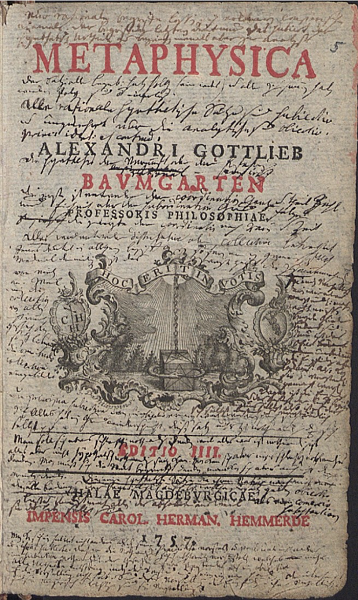MrStakhanovite wrote:You may be right, it isn’t like the American Humanities in the late 20th century ever had a publish or perish atmosphere. Search committees often use loose associations in lieu of demonstrable acts of expertise such as publishing record. Really, what kind of person would consult multiple reference works and bibliographies to gain a sense of who is influential in an industry driven by writing things and then making those written works publicly available to like minded scholars?
Except we're not talking about search committees (although one would hope they'd notice the place of Kant in Solmon's works) Rather we're talking about an offhand comment about whether Solomon is an expert on Kant as a way of situating his work in a paper written to a popular audience.
ClarkGoble wrote:It is like a transitive property, specializing in Hegel necessarily grants expertise in Kant. Does becoming a specialist in Kant necessarily grant expertise in any of his influences? Or is he a historical anomaly that grounds all philosophy that came after him?
Except he's not just specializing in Hegel. He's specializing in German Idealism. If you have a philosophical background I'd assume you know the role of Kant in that. One can of course always disagree with his reading. But that doesn't appear to be what you're doing. Rather you're questioning using him as a source at all which frankly just seems extremely odd to me given what books he has published - in particular the volume quoted from.
MrStakhanovite wrote:I noted with some regret that Kant wrote extensively about religion and Mark had decided to forego those areas to quote from Solomon’s 19th century background to Existentialism. Even my meager Kant selection contains Wood and Clark’s translation of Kant’s ‘Lectures on Philosophical Theology’ and Greene and Hudson’s translation of of Kant’s ‘Religion within the Limits of Reason Alone’ which would seem to have much more in common with Givens’ topographical book about Mormon religious thinking that Mark is ostensibly reviewing.
But Mark doesn’t draw on any of that.
I'm rather confused here.
First let me note in advance that I tend to disagree with Mark on quite a few key issues even though we both largely come out of the pragmatist tradition. He's more Dewey/James while I'm much more influenced by Peirce. To me he verges upon relativism whereas I'm pretty much a realist of the Peircean stripe. I bring this up just to note we have fundamentally different stances and have regularly butted heads.
All that said the only reason Mark brings up Solomon was to quote from one of his many books on German Idealism about Kant. I just don't quite get the objection. Are you saying the quote is problematic and that Solomon is not to be trusted? If so, I think you're just off your rocker given the large, large number of books on German Idealism he's published and that are well respected. Of course again one can disagree with him, but again that's not what you're doing. You're questioning the validity of quoting him as a source. Second, by focusing in on him trying to explain why Solomon's views here are relevant, you have completely missed it's place in the argument.
MrStakhanovite wrote:The last of my efforts were spent on Google Scholar and Philpapers searching for an article or book authored by Robert C. Solomon on Kant and my search was fruitless, I found nothing. I can’t seem to find any evidence that Solomon wrote about Kant and his work exclusively.
You didn't look terribly hard. Go to JSTOR. You'll find a few with the Kant tag. More particularly though almost all his books on German Idealism have a focus on Kant. Even his books on Hegel or the existentialists are all grappling with Kant. So I think you missed the trees when looking at the forest.
I find the distinction between a person being competent on a given subject and a person being regarded as an expert or specialist on that same subject to be a helpful one. In fact it is common practice for C.V.s today to include areas of specialization and areas of competency.
The issue is your criteria for deciding who is or isn't an expert though. Again, I don't know your background. I'll just ask this simple question. Can one be an expert on German Idealism without being an expert on Kant? Note the issue isn't whether he's among the top scholars on Kant proper. One can, after all, be an expert without necessarily being in the top 20 writers on the topic. (Which is why I found your initial post odd)
